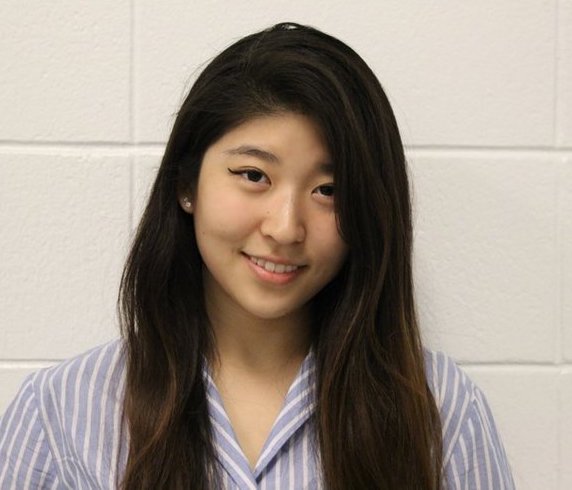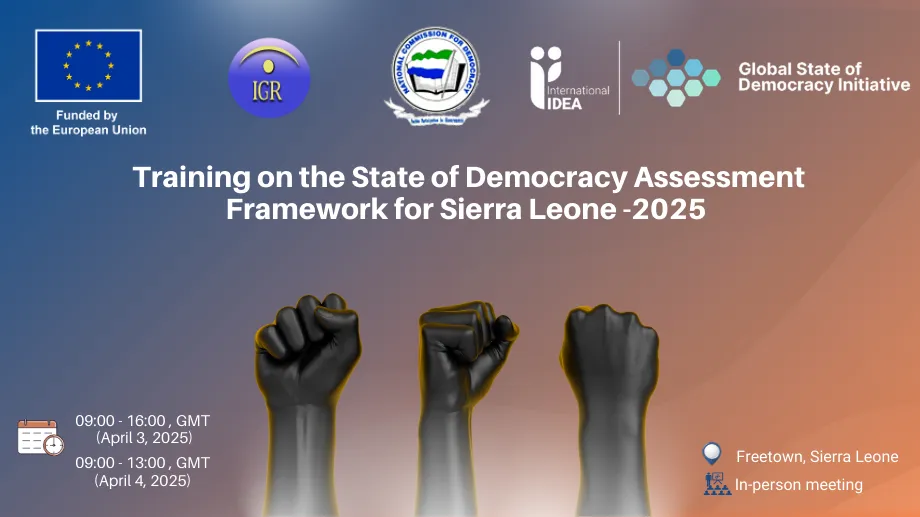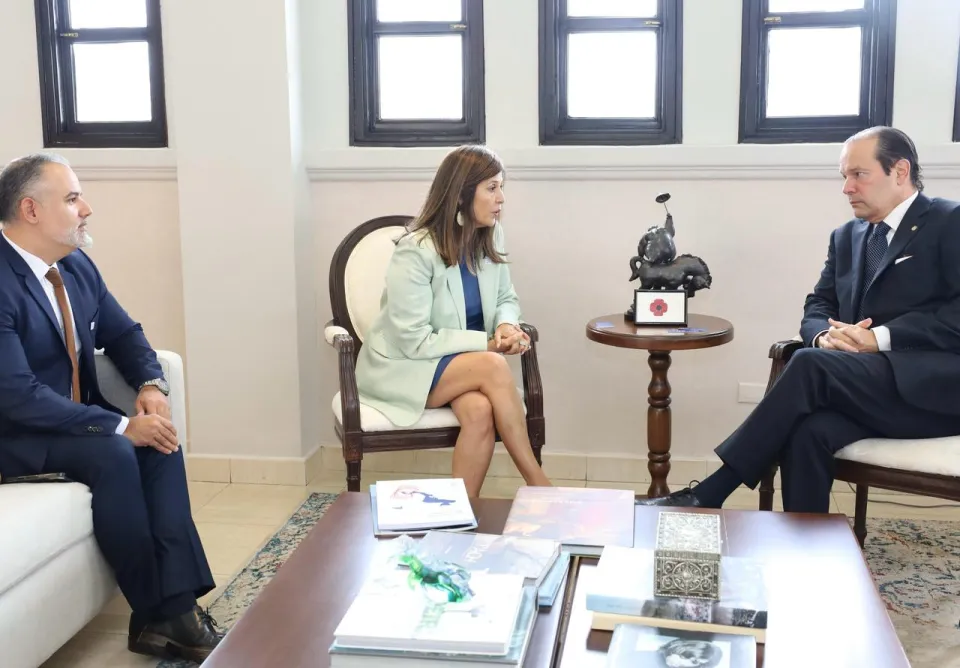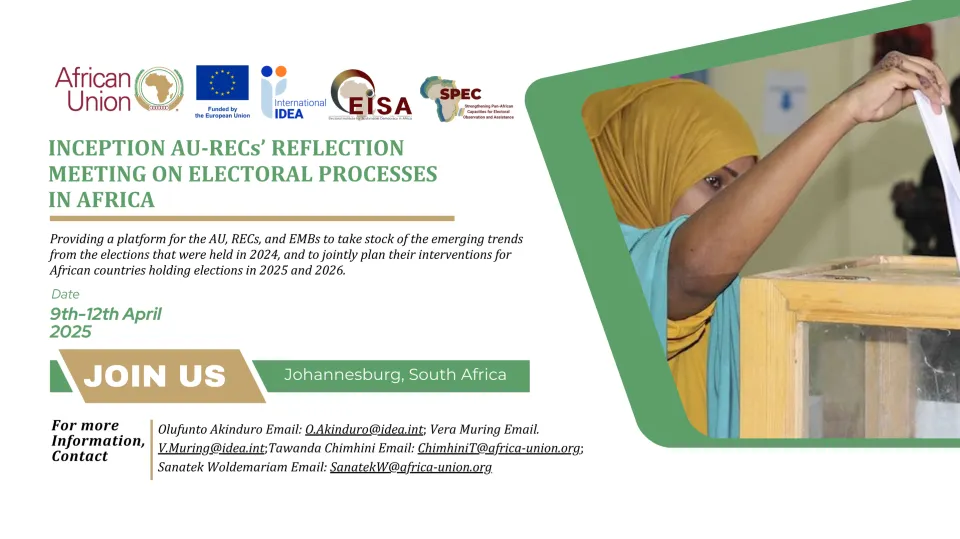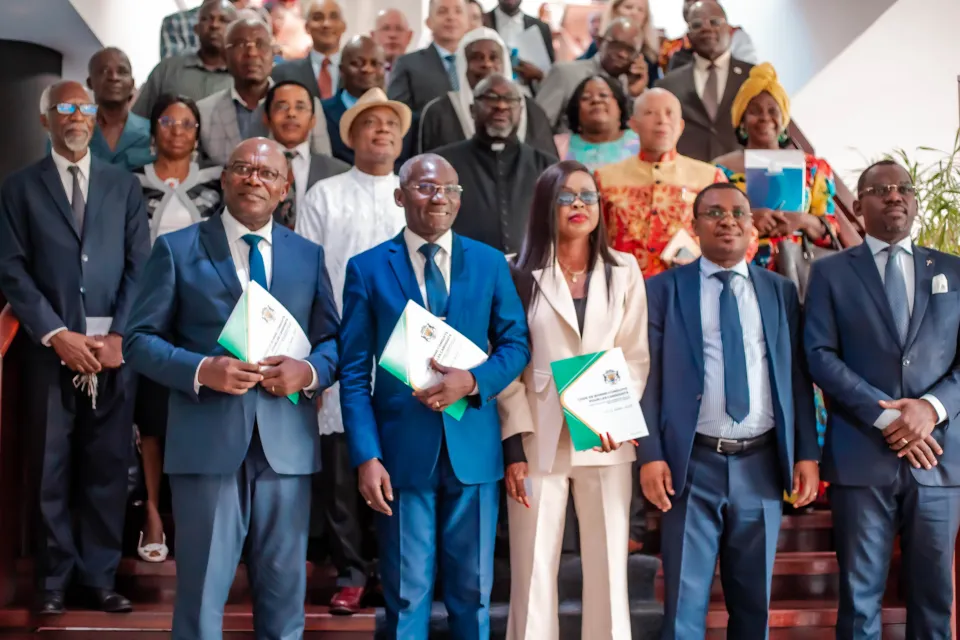Myanmar’s UEC explore the impacts of federalism on elections in Germany and Finland
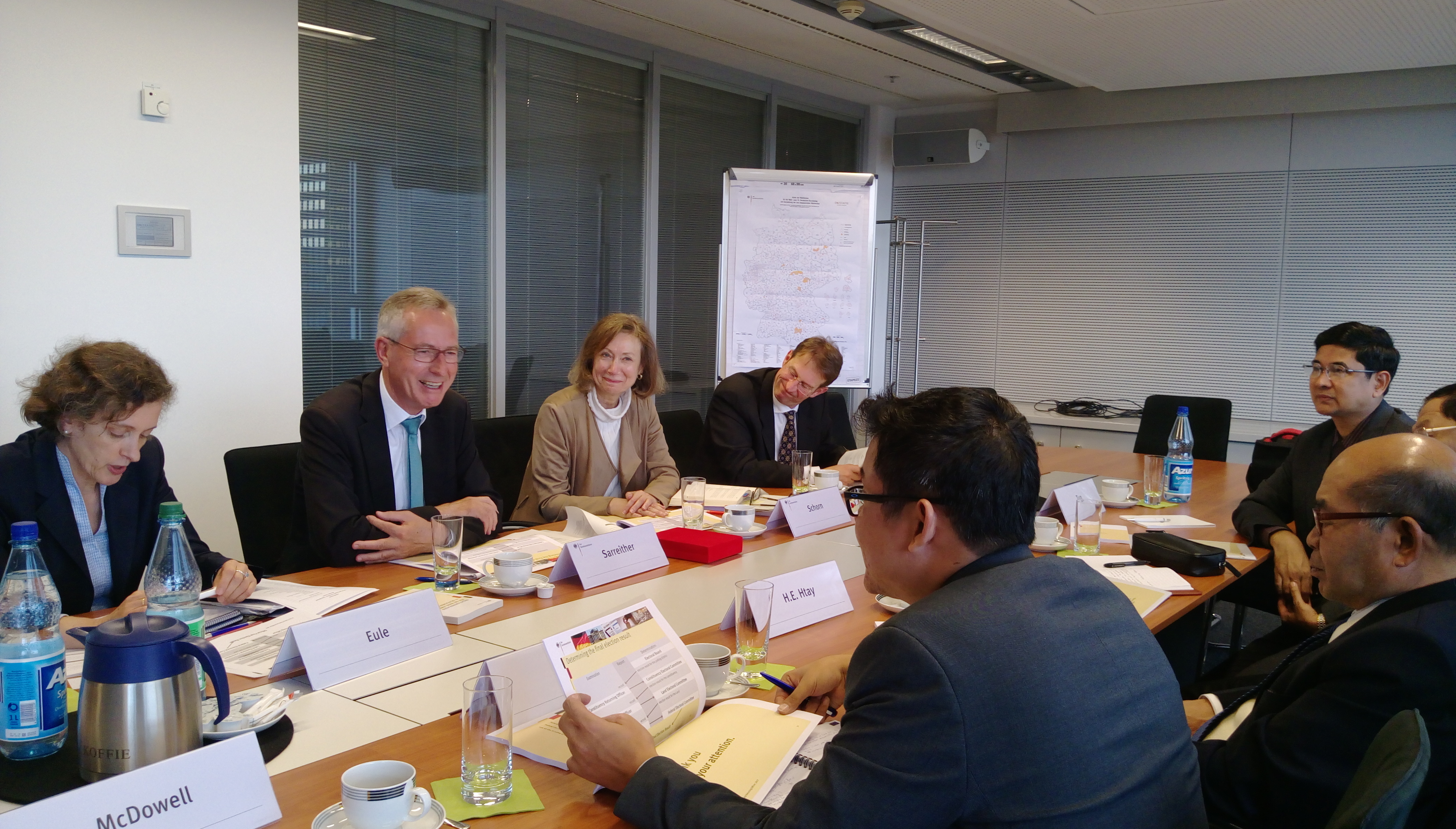
From 18–27 September – during the German federal elections – International IDEA’s Myanmar Office organized a study tour of Germany and Finland for Myanmar’s Union Election Commission (UEC). Through comparative experiences and peer-to-peer learning, the UEC delegation gained an abundance of new perspectives and knowledge, particularly on the implications of federalism on election management and the importance of civic education in promoting democracy.
During the tour, the UEC delegation met with the German and Finnish electoral management boards (EMB) at various levels of government, federal and local government officials, and civil society organizations.
They began their journey in Germany. As Myanmar is currently transitioning to a federal system of government, the distribution of power in Germany was a hot topic of conversation. Through detailed discussions with their German counterparts, the group gained a deeper understanding of the function of federalism in Germany and its practical implications for electoral management. The group was struck by the contrasting roles and responsibilities of EMBs at the federal, land (state), and local levels and the amount of responsibility delegated to subnational bodies.
Meetings with government officials and civil society organizations were also thought-provoking. For example, discussions with the Friedrich Naumann Foundation left the delegation with a deeper appreciation for the important role that civil society organizations play in democracy promotion and civic education in Germany.
On September 24, after several meeting-filled days, the highly-anticipated German federal elections were held. The delegation had the opportunity to observe voting, in both rural Wustermark and downtown Berlin. They were also involved in counting and reporting votes in Berlin. By contrasting the conduct of elections at these two drastically different electorates, the UEC better understood the practical implications of geography and electorate demographics for electoral management in Germany.
The UEC also had the opportunity to visit cultural and historical sites, such as the Bundestag and the Hessen State Parliament, getting a flavor of German history and political culture. At the Bundestag the delegation learned about the symbolism of the transparent Reichstag dome, serving as a reminder of the importance of transparency and inclusivity in government.
The group then embarked on a shorter tour of Finland. They visited the Ministry of Justice and the Ministry of Foreign Affairs and signed a memorandum of understanding with Demo Finland and the Netherlands Institute for Multiparty Democracy. At the Ministry of Justice, the UEC learned about the Finnish electoral system and administration. This offered a stark contrast to what they observed in Germany, particularly in terms of ' voting systems and political financing systems.
At the Ministry of Foreign Affairs, the delegation met with Mr. Rauno Merisaari, the Ambassador for Democracy and Human Rights, and discussed current affairs in Myanmar. Mark McDowell, Head of Mission, International IDEA Myanmar, delivered a detailed briefing on International IDEA’s activities in Myanmar. The delegation then visited and observed a working session at the Finnish parliament, bringing an end to their trip.
The delegation returned home with an abundance of new perspectives and knowledge. Having established the foundations for robust relationships, they anticipate fostering long-lasting partnerships with their European counterparts. In accompanying and facilitating the trip, International IDEA Myanmar also deepened its relationship with the UEC, adding to a list of successful collaborative efforts. The UEC delegation and International IDEA would like to thank the European Union, the Goethe Institut, and Demo Finland for their invaluable support and on the ground assistance.
